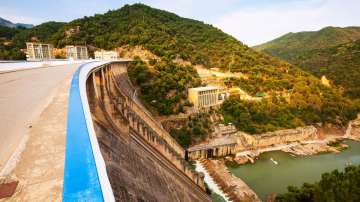India has approved the construction of the Dibang hydropower project, the largest of its kind in the country, as part of its efforts to build renewable energy generation to meet rising power demand. The 2,880-megawatt project will be developed by NHPC Limited. It is estimated to cost $3.9 billion and take nine years to build.
Hydropower has been classified as renewable energy in India and is seen as essential in the country's transition away from coal to help manage the fluctuations caused by intermittent solar and wind supplies.
ALSO READ: Govt to clear OROP arrears to ex-servicemen in single installment by March 15 after SC rap
When completed, the 278-meter-tall dam will be India's tallest structure. The project is located on the Dibang River in Arunachal Pradesh's Lower Dibang Valley District.
The project calls for the construction of a 278m high Concrete Gravity Dam (above the deepest foundation level), six horseshoe-shaped head race tunnels ranging in length from 300m to 600m with 9m diameter, an underground Power House, and six horseshoe-shaped tailrace tunnels ranging in length from 320m to 470m with 9m diameter.
ALSO READ: Now, between your grievances and redressal there is no person, just technology: PM Modi
Constructing dams often leads to large-scale environmental damage and dislocation of communities, resulting in local protests that delay projects and increase construction costs. The Dibang project, which will be built over more than 5,000 hectares of forest land, is expected to face similar risks, according to various experts.Government assistance for flood mitigation and supporting infrastructure, such as roads and bridges linking the building site, are included in the investment that has been approved.
FAQs:
Q1: What is the purpose of the Dibang hydropower project?
India approved the Dibang hydropower project to build renewable energy generation to meet rising power demand and transition away from coal.
Q2: What are the potential risks of constructing the Dibang hydropower project?
The construction of the Dibang project could lead to large-scale environmental damage and dislocation of communities, resulting in local protests that delay projects and increase construction costs.
Latest India News
